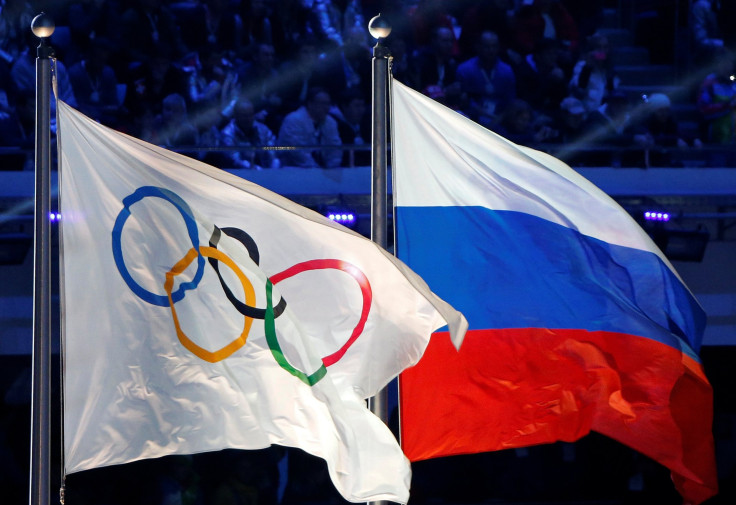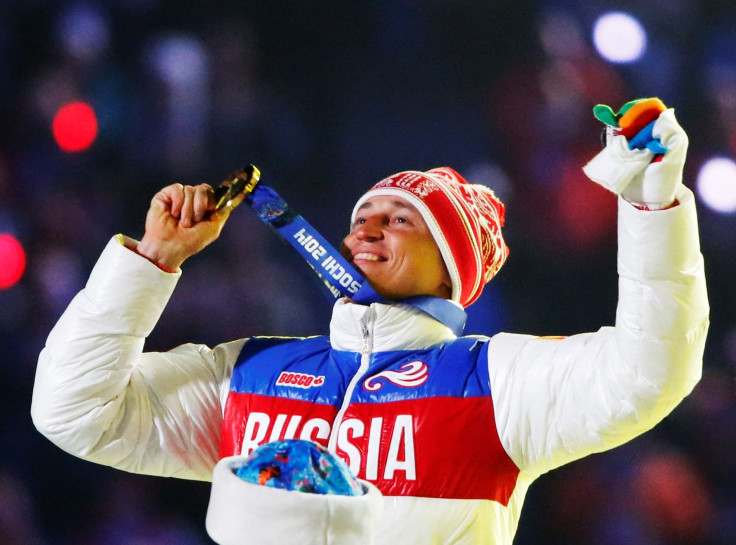Russia Doping Scandal: Kremlin, Medal Winners Deny State-Run Drug Program As Rio Olympics Decision Looms

Russian government officials and Olympic medal winners on Friday denied all allegations of a state-run doping program that allegedly has helped Russian athletes win medals at international sports competitions, including the Olympic Games.
Grigory Rodchenkov, the former director of the laboratory that tested Russian athletes for banned substances, told the New York Times in a report published Thursday at least 15 medal winners at the Sochi Winter Olympics in 2014 were part of a large-scale, state-sponsored doping program. Rodchenkov detailed how athletes were given a cocktail of three banned drugs and members of Russia’s intelligence services replaced tainted urine samples with clean ones to pass testing.
“They sound like absolutely ungrounded statements, have nothing to be based on, and are not backed up with any reliable information,” presidential spokesman Dmitry Peskov said in a report by Russian news agency Tass. “I would rather not trust such ungrounded accusations.”
Russia’s Sports Ministry said Friday it was considering filing a lawsuit against the New York Times, reiterating there is no state-run doping program.
Bobsledder Alexander Zubkov, skier Alexander Legkov, skeleton racer Alexander Tretyakov and the entire Russian women’s ice hockey team were all directly implicated in the alleged state doping program.

“What’s written now in this article is baseless libel,” Zubkov told Russian state media, the Associated Press reported. “I’m a person who has worked for many years in sport, competed at the Olympics, and I know how much responsibility each athlete bears when they compete at such a high level.”
The World Anti-Doping Agency (WADA) will investigate Rodchenkov’s allegations, and the International Olympic Committee called the claims “very worrying.” Rodchenkov currently lives in Los Angeles having left Russia after a November report from WADA named him as a key figure in state doping. He said he was forced to resign from his position and two of his colleagues mysteriously died in February.
“We were fully equipped, knowledgeable, experienced and perfectly prepared for Sochi like never before,” Rodchenkov said of the doping operation. “It was working like a Swiss watch.”
Following the November WADA report, Russia’s track and field team was suspended from competition. Leaders are expected to decide in the upcoming weeks whether to lift the ban ahead of the Summer Olympics in Brazil, which begin Aug. 5. The chair of WADA’s athletes commission called for the organization to exert its influence on the Summer Games.
“We acknowledge that WADA does not have jurisdiction over the Olympic Games,” said Beckie Scott, Reuters reported. “WADA does have, however, influence, and clean athletes of the world propose that you use that influence with respect to Rio and Games beyond. Athletes strongly feel that if there cannot be a guarantee that athletes there from Russia are clean and not involved in doping activity that they should not be there.”
Russian officials were prepared for the publication of the New York Times report and started denouncing any potential allegations Wednesday.
“It reminds me of a relay, when a baton is passed from one foreign media source to another one,” Sports Minister Vitaly Mutko told Tass. “These are all links in a single chain. There is nothing behind it in fact. There are no facts.”
© Copyright IBTimes 2025. All rights reserved.























